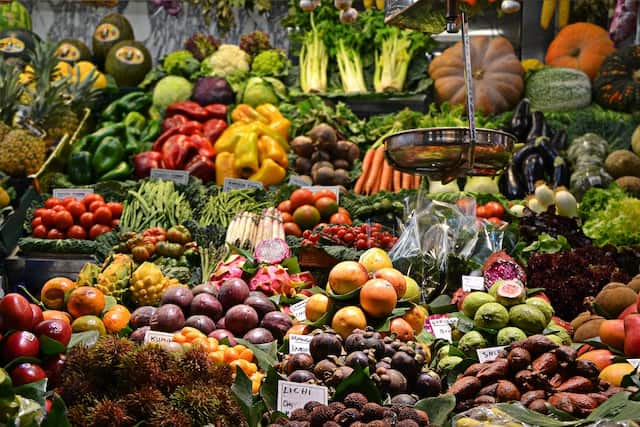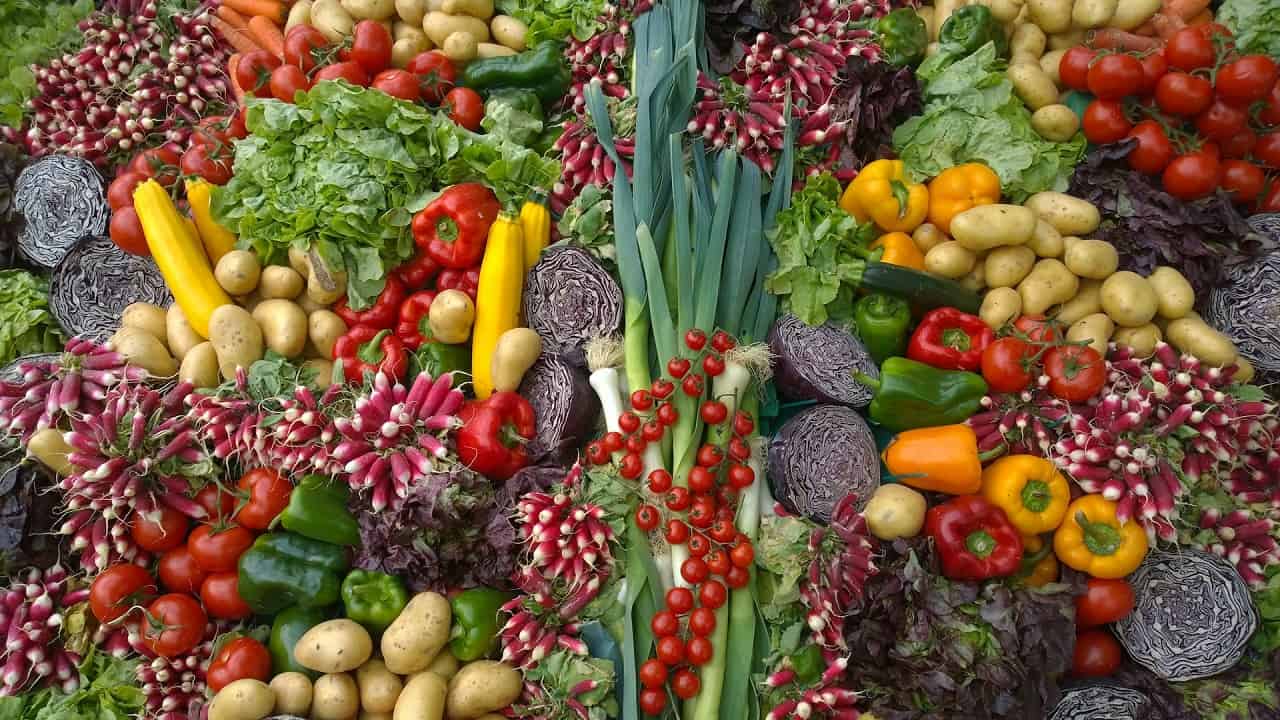Can You Be Healthy Without Eating Vegetables? The Truth Revealed
Many of us have been told since childhood that we need to eat our vegetables to stay healthy. But what if you’re someone who just doesn’t like the taste of greens? Can you still be healthy without eating vegetables? The short answer is yes, but it’s important to understand the role that vegetables play in our overall health.
Vegetables are an important source of vitamins, minerals and fiber, all of which are essential for maintaining good health. However, there are other ways to get these nutrients if you’re not a fan of veggies. In this article, we’ll explore some alternatives to vegetables and discuss the potential health risks of avoiding them altogether. We’ll also take a look at supplements as a possible substitute for those who can’t or won’t eat vegetables.
Key Takeaways
- While vegetables are an important source of nutrients, there are alternative ways to get them if you don’t like veggies.
- Supplements may be a viable option for those who can’t or won’t eat vegetables, but they should not be relied on as a substitute for a balanced diet.
- Avoiding vegetables altogether can lead to nutritional deficiencies and other health problems, so it’s important to find ways to incorporate them into your diet if possible.
Understanding the Importance of Vegetables
Nutritional Value
Vegetables are an essential part of a healthy diet. They provide us with a wide range of essential nutrients, including vitamins, minerals and fiber. Vegetables are also low in calories, making them an excellent choice for those looking to maintain a healthy weight.
Some of the key nutrients found in vegetables include:
- Vitamin C: Helps support a healthy immune system and aids in the absorption of iron.
- Vitamin K: Important for blood clotting and bone health.
- Folate: Essential for the growth and repair of cells.
- Potassium: Helps regulate blood pressure and fluid balance in the body.
- Fiber: Helps promote regularity and can aid in weight management.
Role in Disease Prevention
Eating a diet rich in vegetables has been linked to a lower risk of chronic diseases such as heart disease, diabetes and certain types of cancer. This is due in part to the high levels of antioxidants found in many vegetables, which help protect the body from damage caused by free radicals.
Some of the specific ways that vegetables can help prevent disease include:
- Lowering blood pressure: Vegetables high in potassium, such as sweet potatoes and spinach, can help regulate blood pressure and reduce the risk of heart disease.
- Reducing inflammation: Certain vegetables, such as broccoli and kale, contain compounds that have anti-inflammatory properties, which can help prevent chronic diseases such as arthritis and cancer.
- Improving insulin sensitivity: Vegetables high in fiber, such as Brussels sprouts and artichokes, can help improve insulin sensitivity and reduce the risk of type 2 diabetes.
Overall, vegetables are an essential part of a healthy diet and play a crucial role in disease prevention. Incorporating a variety of colorful vegetables into your meals can help ensure that you are getting all of the essential nutrients your body needs to thrive.

Exploring Alternatives to Vegetables
When it comes to maintaining a healthy diet, vegetables are often considered a staple. However, there are some people who may not enjoy the taste or texture of certain vegetables or have dietary restrictions that prevent them from consuming them. In this section, we will explore some alternatives to vegetables that can still provide a variety of essential nutrients.
Fruits
Fruits are an excellent alternative to vegetables, as they are packed with vitamins, minerals, and fiber. Some of the best fruits to incorporate into your diet include:
- Berries: Strawberries, blueberries, raspberries and blackberries are all excellent sources of vitamin C, fiber, and antioxidants.
- Citrus fruits: Oranges, grapefruits and lemons are great sources of vitamin C and can help boost your immune system.
- Bananas: Bananas are a great source of potassium, which can help regulate blood pressure and support heart health.
Whole Grains
Whole grains are another alternative to vegetables that can provide a variety of essential nutrients. Some of the best whole grains to incorporate into your diet include:
- Brown rice: Brown rice is a great source of fiber, B vitamins and minerals like magnesium and selenium.
- Quinoa: Quinoa is a complete protein, meaning it contains all nine essential amino acids. It is also a great source of fiber and minerals like iron and magnesium.
- Oats: Oats are a great source of fiber, protein and minerals like iron and zinc.
Legumes
Legumes, such as beans, lentils and chickpeas, are another great alternative to vegetables. They are an excellent source of protein, fiber and a variety of essential vitamins and minerals. Some of the best legumes to incorporate into your diet include:
- Black beans: Black beans are a great source of protein, fiber and minerals like iron and magnesium.
- Lentils: Lentils are a great source of protein, fiber and minerals like iron and folate.
- Chickpeas: Chickpeas are a great source of protein, fiber and minerals like iron and zinc.
By incorporating these alternatives into your diet, you can still maintain a healthy and balanced diet without relying solely on vegetables.
Supplements as a Substitute
Vitamins
When it comes to getting the nutrients we need, supplements can be a great option. Vitamins are essential for our bodies to function properly and many of them can be found in supplement form. For example, Vitamin C can be found in tablets or capsules and can help support our immune system and promote healthy skin.
It’s important to note, however, that while supplements can be helpful, they should never be a complete substitute for a healthy diet. It’s always best to get your nutrients from whole foods whenever possible.
Minerals
In addition to vitamins, minerals are also essential for our bodies to function properly. Calcium, for example, is important for strong bones and teeth, while iron is necessary for healthy blood cells.
Like with vitamins, supplements can be a good way to ensure you’re getting enough of these essential minerals. However, it’s important to be careful when taking mineral supplements, as taking too much of certain minerals can actually be harmful.
Overall, while supplements can be a helpful addition to a healthy diet, they should never be a complete substitute for whole foods. It’s always best to try to get your nutrients from a balanced diet whenever possible.
Potential Health Risks of Avoiding Vegetables
Nutrient Deficiency
When we avoid vegetables in our diet, we risk becoming deficient in important nutrients that our bodies need to function properly. Vegetables are an excellent source of vitamins, minerals, and fiber. For example, leafy greens like spinach and kale are rich in vitamin K, while carrots and sweet potatoes are high in vitamin A. By avoiding vegetables, we may miss out on these vital nutrients, leading to deficiencies that can cause health problems.
Chronic Diseases
Research has shown that a diet lacking in vegetables is linked to an increased risk of chronic diseases. For example, a lack of fiber from vegetables can lead to digestive issues, such as constipation and diverticulitis. Additionally, a diet low in vegetables has been associated with an increased risk of heart disease, stroke and certain types of cancer. This is because vegetables contain antioxidants and other compounds that help protect our cells from damage.
To summarize, avoiding vegetables in our diet can lead to nutrient deficiencies and an increased risk of chronic diseases. It’s important to incorporate a variety of vegetables into our meals to ensure we are getting the nutrients our bodies need to stay healthy.
Conclusion
In conclusion, while vegetables are an important part of a healthy diet, it is possible to maintain good health without eating them. We have seen that there are alternative sources of nutrients that can be obtained from other food groups, such as fruits, whole grains and legumes.
However, it is important to note that a diet lacking in vegetables may increase the risk of certain health conditions, such as heart disease and cancer. Therefore, it is recommended to consume a variety of fruits and vegetables to ensure a well-rounded diet.
Ultimately, the decision to include vegetables in one’s diet is a personal choice. It is important to consult with a healthcare professional to determine the best diet plan for individual needs and health goals.
In summary, while vegetables are not the only source of nutrients, they can play an important role in maintaining overall health and well-being.







